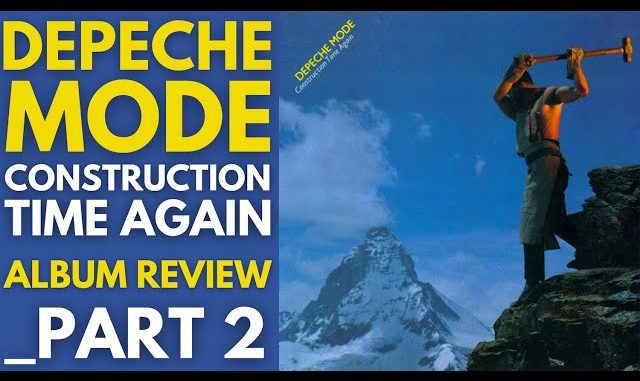
Released on August 22, 1983, Construction Time Again marked a pivotal moment for Depeche Mode and marked their reputation as experimental pioneers. With Alan Wilder officially joining the lineup and the band diving into industrial and political themes, this album remains a cornerstone of their discography. Here are five lesser-known facts about this groundbreaking record.

1. Alan Wilder’s Bold Arrival
Alan Wilder wasn’t just the newest member of Depeche Mode; he also brought a fresh approach to songwriting. Two tracks on the album—“Two Minute Warning” and “The Landscape Is Changing”—were penned by Wilder, giving fans a glimpse of his distinct creative voice. His presence added depth and sophistication to the band’s sound, proving he was more than just a keyboardist.
2. A Journey to the Industrial Frontier
The seeds of the album’s industrial sound were planted when Martin Gore attended an Einstürzende Neubauten concert. Inspired by their use of unconventional “instruments,” Gore decided to infuse Construction Time Again with found sounds. From stones to toy instruments, these samples, manipulated through a Synclavier, gave the album its signature experimental edge.
3. Gareth Jones’ Reluctance
Producer Gareth Jones initially had misgivings about working with Depeche Mode, dismissing them as too commercial. Persuaded by John Foxx, Jones took on the project and became instrumental in shaping the album’s sonic identity. His work on Construction Time Again was so impactful that he continued collaborating with the band on future classics like Some Great Reward and Black Celebration.
4. “Pipeline” and Political Awakening
Martin Gore’s travels to Thailand inspired the socially conscious lyrics on the album, particularly the song “Pipeline.” This track not only incorporated raw, sampled sounds but also showcased the band’s shift toward addressing themes of inequality and environmental awareness—a major departure from their earlier, lighter pop anthems.
5. The Anthem That Defined an Era
“Everything Counts” became the album’s flagship single, reaching No. 6 on the UK charts. Its critique of corporate greed—expressed through the now-iconic lyrics “grabbing hands grab all they can”—resonated deeply in Thatcher-era Britain. The song’s blend of xylophone, melodica, and sampled sounds set the tone for Depeche Mode’s future explorations into socially conscious music.
Be the first to comment